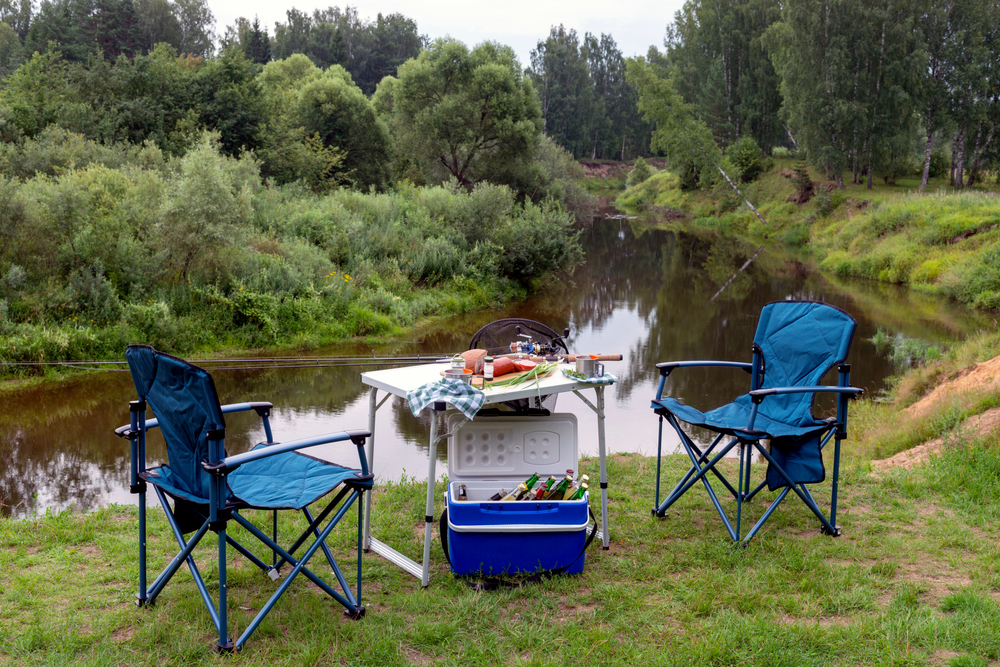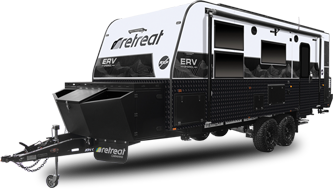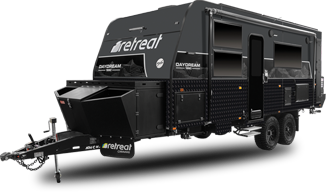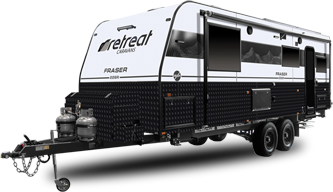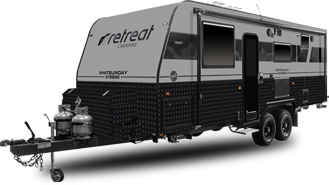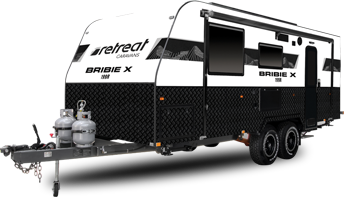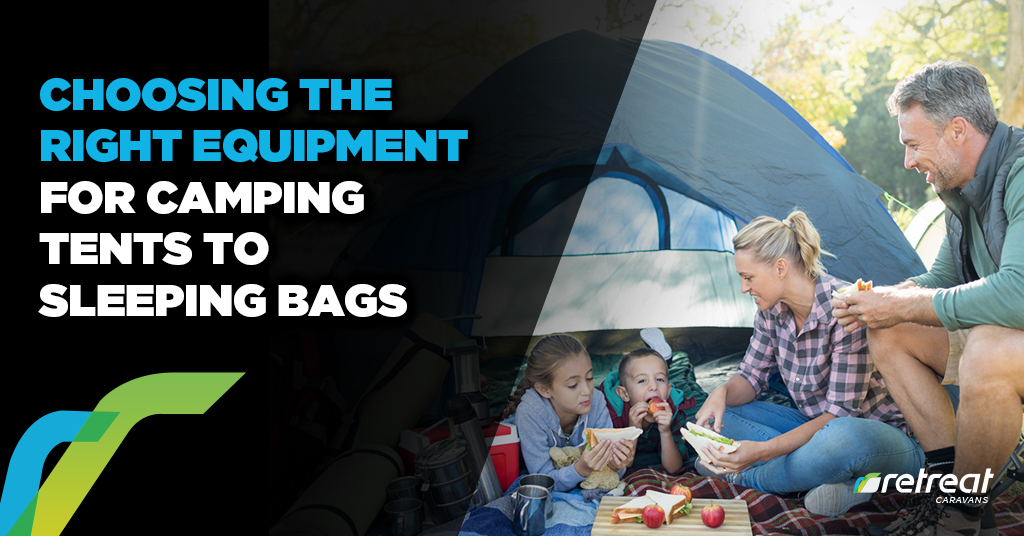
Choosing The Right Equipment For Camping: Tents To Sleeping Bags
Spending time with friends and family while getting away from the hustle and bustle of everyday life is made possible by camping. However, it’s crucial to check that you have all the necessary gear before you pack your bags and head out.
Whether you’re spending your trip in an off-road caravan or roughing it under the stars, choosing the right equipment can mean the difference between a comfortable and enjoyable camping trip, or a miserable and sleepless night under the stars.
In today’s blog, we’ll walk you through the basics of camping equipment and assist you in selecting the right gear for your next caravan adventure. Continue reading to find out more!
1). Tents
Choosing the right tent is one of the most important decisions you’ll make when camping. There is a tent to suit your needs whether you are going alone, with a partner, or with a group. Here are a few things to think about when selecting the best tent for your camping trip:
- Capacity. If you’re travelling with a group, make sure the tent you choose can fit everyone. Take into account both the size of each sleeping area and the size of the tent when it is set up.
- Seasonality. Season-appropriate tents are available. A lightweight, three-season tent ought to work well if you’re going camping in the summer. A four-season tent, on the other hand, is required if you’re planning a winter camping trip because it can withstand colder temperatures and more extreme weather.
- Set-Up. Particularly if you’re camping alone, think about how simple the tent is to erect. To avoid confusion, choose a tent with coloured poles and simple, clear instructions.
- Weight. A lightweight tent that you can carry on your back is what you need if you’re backpacking. For car camping trips, weight might not be as much of a concern, but you’ll still want a tent that’s simple to transport.
- Price. Prices for tents range greatly, from low cost to high end. When selecting a tent, take into account both your spending limit and the features you desire.
2). Camping Chairs
Any outdoor adventure needs camping chairs to provide comfort and relaxation while enjoying nature. There are a number of things to take into account when selecting a camping chair, including size, weight, and portability.
Size and weight should be taken into account, especially if you intend to hike with or carry the chair in a backpack. Choose products that are portable, lightweight, and compact. But comfort should also come first, and a larger chair might be more comfortable for prolonged sitting.
The kind of camping you’ll be doing is a further important consideration. If you plan on backpacking or camping in remote areas, you may want a chair that is simple to pack and set up, whereas those who will be camping in a caravan or campervan may prefer a larger, more luxurious option. For the utmost comfort and convenience, look for chairs with amenities like cup holders, headrests, and adjustable settings.
3). Sleeping Bags
Sleeping bags are another essential piece of camping gear that you need to get right. A good sleeping bag should keep you warm in cold weather, and be comfortable enough for a good night’s sleep.
When choosing a sleeping bag, the main factors to consider are the temperature rating, the type of insulation, and the shape. Sleeping bags come in different shapes such as rectangular, mummy, and semi-rectangular, with the mummy shape being the most thermally efficient.
Temperature ratings indicate the lowest temperature in the sleeping bag is designed to keep you warm in. It’s important to choose a sleeping bag with a temperature rating appropriate for the conditions you’ll be camping in, as being too hot or too cold can greatly impact your comfort.
Insulation is what provides warmth in a sleeping bag, and the two main types are down and synthetic. Down is lightweight and compressible, but loses its insulating properties when wet. Synthetic insulation, on the other hand, retains its insulating properties when wet, but is typically bulkier and heavier.
4). Cooking Equipment
Having the right cooking equipment is essential when camping. Whether you’re a seasoned camper or just getting started, investing in a high-quality stove or camp kitchen will make or break your trip. The type of cooking equipment you’ll need will be determined by several factors, including the number of people camping with you, the length of your trip, and the type of food you’ll be preparing.
Camping stoves come in several varieties, including propane stoves, butane stoves, and backpacking stoves. Because they are easy to use and have a large cooking surface, propane stoves are ideal for family camping trips. Because they are small and lightweight, butane stoves are ideal for solo or couple camping trips. Backpacking stoves are small and lightweight, making them ideal for solo trips or backpacking excursions.
There are two distinct varieties of portable kitchens for camping: the rudimentary variety and the more elaborate, fully-equipped gourmet variety. A grill and a surface for preparation are the two most essential components of a basic camp kitchen, both of which can be purchased for under $100. On the other hand, if you’re looking for something truly luxurious, there are deluxe camp kitchens that have everything from multiple burners to a sink and plenty of counter space for cooking. Make sure you have the bare minimum of cookware, including dishes, utensils, and cutting boards, regardless of the style you end up using.
Maintenance And Care Of Camping Equipment
Maintaining and caring for your camping equipment is critical to ensuring its longevity and ensuring a comfortable and safe camping experience. Here are some pointers to help you keep your gear in top condition.
- Cleaning: After each camping trip, thoroughly clean your equipment. Wash tents, sleeping bags, and camping chairs with mild soap and water. Harsh chemicals should be avoided as they can harm the fabric or coating. Allow your gear to air dry completely before storing it if it is damp.
- Storage: Keep your camping equipment in a cool, dry place. To prevent mildew, tents should be kept out of direct sunlight and away from moisture. To avoid compression, which can damage the insulation, sleeping bags should be stored in a large, breathable storage bag.
- Inspection: Inspect your equipment before each trip for signs of damage or wear. Inspect your tent’s seams and zippers and replace any broken parts. Inspect the insulation in your sleeping bag and replace it as needed. Regular maintenance and inspection will help keep your equipment in good working order for many years.
Final Thoughts
The right camping equipment can make or break your outdoor experience. From tents and sleeping bags to camping chairs and cooking equipment, taking the time to find the best gear for your needs will help ensure a successful and enjoyable camping trip. Don’t forget to think about things like size, weight, and durability, and don’t skimp on maintenance and care for your equipment. You’ll be ready for adventure in the great outdoors if you have the right equipment. Happy camping!
If you are looking for the best off-road caravans for sale in Australia for your next big adventure, you can’t go past Retreat Caravans. Please check our full range of caravans below, all carefully designed with you in mind:


